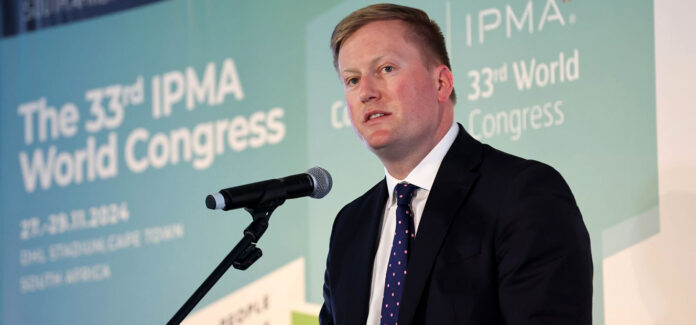In any constitutional democracy, the relationship between ministerial authority and independent public entities must be guided by transparency, lawful governance, and respect for institutional mandates.
Yet, the unfolding conflict between Minister of Public Works and Infrastructure Dean Macpherson and the Independent Development Trust (IDT) reveals a disturbing erosion of these principles, marked by political heavy-handedness, operational meddling, and mounting legal threats.
The IDT, a schedule two entity with a mandate to implement social infrastructure projects such as schools, clinics and public utilities, has found itself at the epicentre of a political storm.
The catalyst: a series of direct interventions by Macpherson into the IDT’s procurement and operational processes, most notably, the controversial pressure swing adsorption oxygen plant project for public hospitals, where tender values ballooned from R216-million to over R800-million.
Since his appointment in July 2024, Macpherson has positioned himself as a reformer, intent on rooting out corruption within the IDT. He has cited suspicious documentation, expired regulatory certificates, and ghost addresses among bidders to justify aggressive action.
His supporters view this approach as essential, especially after years of tender manipulation across state institutions.
But intent alone does not justify methodology. Emails that surfaced in January show the minister directly instructing junior IDT staff, notably a programme manager, to process payments for a contractor, Lonerock Construction, bypassing the CEO and CFO. The instruction related to a variation order exceeding the 20% threshold, a situation that legally requires Treasury involvement.
In short, this was a textbook case of political overreach into executive functions.
The minister has removed key board members, including chairperson Adv Kwazikwenkosi Mshengu, and attempted to install new trustees with checkered public records.
All of this occurred under a fog of parliamentary criticism, civil society backlash, and even threats of litigation from organisations such as Right to Justice and Black Forum SA.
South Africa’s public service governance framework is built on a separation of powers between the executive authority typically ministers, boards of public entities and the professional administration executive management. A board governs, a CEO manages, and a minister provides policy oversight, not micromanagement.
Macpherson’s actions, however, appear to short-circuit this model. According to The Star (February 19, 2025), parliamentary committee members expressed concern over the lack of formal engagement between the minister and IDT leadership. Instead, he has relied on media exposés and behind-the-scenes communications to discredit and disrupt.
Such conduct raises red flags, but does it reflect an anti-corruption agenda or a political attempt to “capture” the IDT by restructuring its board and executive?
When IDT CEO Tebogo Malaka discovered an unidentified device on her car and began receiving threatening phone calls, the conflict took a darker turn. Whether or not the minister is directly involved, the perception of intimidation is potent.
In an environment already reeling from state capture, even the appearance of coercion undermines credibility.
It’s worth noting that the IDT claims it has yet to disburse funds under the contested PSA tender. Moreover, the Global Fund, the co-funder of the project, issued a “no objection letter,” affirming procedural compliance.
If genuine misconduct had occurred, surely a forensic audit or Special Investigating Unit inquiry would be the appropriate response. Instead, what we have are allegations traded through the media and political statements.
The ultimate casualty here may be institutional integrity. The IDT’s board hovers in a state of dysfunction, operating with only seven out of 12 required trustees. Strategic decision-making is paralysed.
There is concern that this will delay critical infrastructure projects, many of which serve
rural and under-resourced communities.
Dean Macpherson may genuinely believe he is acting in the public interest. But public interest cannot be pursued through unlawful or opaque means.
If corruption is suspected, it must be investigated through legal mechanisms. If a board is failing, it must be replaced through a transparent, consultative process.
And if a minister suspects operational weakness, they must work through governance channels, not email junior staff with urgent payment demands.
Governance is not just about good intentions, it’s also about good and procedural process.
• Keswa is a businesswoman and a social commentator




